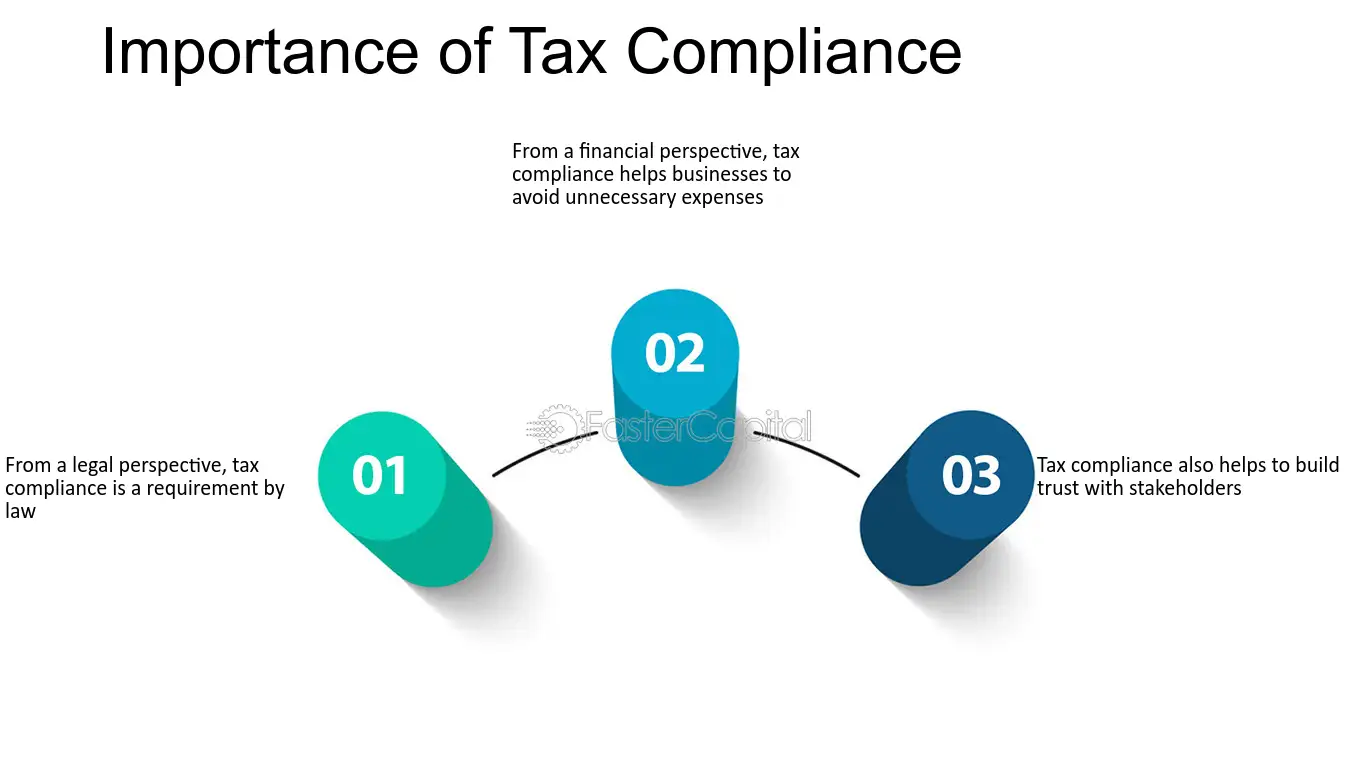The rapidly developing regulations in Dubai require businesses to fulfill tax compliance duties as a strict requirement. Businesses in the startup phase together with established organizations must ensure strict compliance with VAT regulations as well as corporate tax expectations. The consequences of noncompliance include significant financial penalties and legal issues together with bad public image.
The document presents dedicated tax compliance methods which businesses operating in Dubai and throughout the UAE need to follow to stay penalized-free while preserving operational transparency.
Successful tax compliance goes beyond meeting obligations since it stands as a fundamental aspect of sustainable long-term business expansion. Those who operate as freelancers or run small businesses or manage corporations need to understand tax laws because this understanding makes their operations transparent which builds stakeholder trust while preventing unnecessary problems. Your business receives multiple benefits in market competition when it maintains comprehensive compliance systems since these frameworks strengthen your standing during investor relationships and new territory market expansions.
1. Understand the UAE Tax Landscape
The United Arab Emirates has established tax regulations which took effect in the last few years.
- Most goods and services come with a Value Added Tax imposition at 5%.
- Corporate Tax: 9% on profits above the threshold (effective from June 2023)
- Excise Tax imposes a levy upon particular products including tobacco and energy drinks together with sugar-rich beverages.
Key Tax Authorities:
The Federal Tax Authority (FTA) stands as the prime organization responsible for tax administration within the United Arab Emirates.
Ministry of Finance – Handles corporate tax implementation
2. Every business requiring VAT Registration must establish their eligibility for this requirement.
To conduct business operations in the United Arab Emirates your company needs to register for VAT if its annual turnover surpasses AED 375,000. Parities above AED 187,500 have the choice to register voluntarily for excise tax.
- Types of Registration:
- Mandatory VAT Registration
- Voluntary VAT Registration
The timely registration procedure will help you maintain good FTA status without facing penalties.
3. Businesses must maintain precise file documentation that follows all deadlines.
Every company needs to submit their VAT returns to the authorities on a quarterly basis. Your company must file corporate tax returns on a year-by-year basis based upon your selected fiscal year.
- VAT Filing Requirements:
- Output tax (sales)
- Input tax (purchases)
- Net VAT due
Late VAT filing penalties can grow as high as AED 10,000 together with additional substantial amounts. The deadline for filing should be respected because any delay creates problems.
4. Keep Proper Financial Records
Legally a business in the United Arab Emirates must keep records for five years but property transaction records require maintenance for fifteen years.
- Must-Have Records:
- Tax invoices and receipts
- Bank statements
- Inventory records
- Payroll records
A digital or cloud-based accounting system implemented through Xero, Zoho Books or QuickBooks actively maintains FTA-compliance and keeps all records structured.
5. Conduct Regular Internal Reviews
Periodic reviews help ensure:
- Accurate VAT calculations
- The business needs to classify correctly all goods and services.
- Correct input tax recovery
- Your organization should perform quarterly maths compliance checks to discover mistakes so the FTA does not detect them first.
6. Making a tax agent appointment serves as an optional but beneficial method to enhance compliance (Optional but Helpful)
Tax agents who receive FTA authorization enable their clients to benefit from these services.
Their expertise helps you deal with authorities and protect your interests in front of them.
Handle correspondence and queries
Tax agents approved by the FTA provide assistance with handling complex situations and audits such as representing your interests in front of authorities.
The benefit of tax agency representation becomes most beneficial when your company often encounters VAT audits or demands complex tax reports.
7. Businesses must follow recent modifications in tax laws.
The tax regulatory framework of the UAE is continuously undergoing development. Regularly check updates from:
- Federal Tax Authority website (www.tax.gov.ae)
- Ministry of Finance announcements
- Business advisory and accounting firms
- It is essential to include tax updates as part of your standard financial assessment meetings.
8. Don’t Overlook Corporate Tax Requirements
UAE based companies need to apply for corporate tax filing when their profits exceed AED 375,000 starting from 2023.
Key Steps:
- Assess tax liability early
- Separate financial records should be maintained for better tax reporting purposes.
- Send tax returns coupled with annual payment of dues to the authorities.
- Review the free zone guidelines to determine eligibility for a company tax exemption of 0% rate.
9. Avoid Common Tax Mistakes
These represent the primary tax mistakes which Dubai businesses tend to make:
- A business which fails to register for VAT at the proper time
- Misclassifying zero-rated or exempt items
- Failing to issue proper invoices
- Incorrect input tax recovery
- Missing deadlines for VAT or corporate tax returns
- The avoidance of these items will lead to reduced financial strain and expenses.
10. Collaborate with a Tax Compliance Expert to Benefit from Their Knowledge.
Your business benefits from tax consultant partnerships through three specific outcomes:
- Timely registration and filings
- Accurate record-keeping
- Reduced risk of audits or penalties
Operating outside of bureaucratic processes allows business owners to concentrate on their expansion goals.
Conclusion: Stay Proactive, Stay Compliant
Dubai corporations must comply with taxes because it simultaneously benefits their business operations. A combination of accurate systems alongside support access alongside relevant knowledge allows companies to function with confidence./
- Avoid penalties
- Protect your business reputation
- Build strong financial foundations
Tax compliance develops as a persistent process which continues indefinitely after the initial responsibilities are fulfilled. Modern business success requires strategic financial tool selections and accounting expertise as well as dedicated staff development which will boost long-term performance. Your proactive strategy gives you rapid response capabilities which allows you to maintain a reliable position in competitive markets while avoiding all legal complications.

